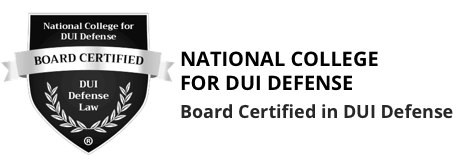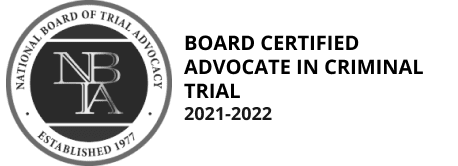If you have been charged with aggravated assault in Houston, Texas, contact attorney Mark Thiessen at 713.864.9000 or request a free case evaluation. We serve Houston and the surrounding areas and are available 24/7 to fight for you.
Houston Aggravated Assault Lawyer
An experienced Houston aggravated assault lawyer won’t hesitate to tell you that aggravated assault is one of the most serious criminal charges a person can face in our justice system. At minimum, aggravated assault charges are tried as second degree felonies — and that means considerable jail time if you’re convicted of this violent crime.
If you or a loved one have been accused of aggravated assault, it is vital that you enlist the help of an experienced aggravated assault lawyer immediately. Thiessen Law Firm’s Mark Thiessen is Board Certified in Criminal Law by Texas Board of Legal Specialization and has a proven track record of crafting trial-ready, successful defense strategies for those accused of aggravated assault.
If you’ve been accused of aggravated assault, your freedom depends on the steps you take next. Call 713-864-9000 to speak to an experienced aggravated assault lawyer at Thiessen Law Firm today.
Mark Thiessen is a criminal defense all-star. If he can’t get you a win, nobody can.
I’ve worked with Mark and his team on two very different cases, and both times I’ve been blown away by the level of honesty, strategy, and respect that Thiessen Law Firm brings to the table…
Posted by Adam, an Assault Client
View More Testimonials
What is aggravated assault in Texas?
According to Texas Penal Code § 22.02, one can be charged with aggravated assault if one intentionally, knowingly, or recklessly assaults another person with an additional aggravating factor to the case such as serious bodily injury to another person. Another aggravating factor in these cases is whether or not the defendant is accused of assaulting someone with the use of a deadly weapon (with use being defined as broadly as only showing or displaying the weapon).
When making sense of what charges you may receive and understanding your options for defense, there are three possible elements of aggravated assault that you should keep in mind:
- Serious bodily injury;
- Intent, knowing or recklessness; and
- Deadly weapon.
Let’s break them down.
Have you been charged with assault or manslaughter following a DWI? Get answers to your questions regarding intoxication assault and intoxication manslaughter in Texas.
Serious bodily injury
Generally speaking, unless an act of assault in Texas was committed against a public servant or involved the use or brandishing of a deadly weapon, serious bodily injury elevates an assault accusation from simple assault to aggravated assault. In Texas, serious bodily injury refers to any bodily injury that carries a substantial risk of death, disfigurement, or permanent bodily damage such as loss of an eye, limb, or organ function.
Culpable Mental State
Texas Penal Code § 6.03 defines the mental states that the State of Texas must prove beyond a reasonable doubt:
INTENT: (a) A person acts intentionally, or with intent, with respect to the nature of his conduct or to a result of his conduct when it is his conscious objective or desire to engage in the conduct or cause the result.
KNOWINGLY: (b) A person acts knowingly, or with knowledge, with respect to the nature of his conduct or to circumstances surrounding his conduct when he is aware of the nature of his conduct or that the circumstances exist. A person acts knowingly, or with knowledge, with respect to a result of his conduct when he is aware that his conduct is reasonably certain to cause the result.
RECKLESSLY: (c) A person acts recklessly, or is reckless, with respect to circumstances surrounding his conduct or the result of his conduct when he is aware of but consciously disregards a substantial and unjustifiable risk that the circumstances exist or the result will occur. The risk must be of such a nature and degree that its disregard constitutes a gross deviation from the standard of care that an ordinary person would exercise under all the circumstances as viewed from the actor’s standpoint.
Many times, each case will be very fact-specific and come down to the 12 people in the jury deciding what, if any, was the mental state of the client, which is why it is important to hire a trial lawyer that will be able to paint the scene for the jury and help them feel what happened.
Deadly Weapon
Texas Penal Code § 1.07(17) also defines what a deadly weapon is:
(a) A firearm or anything manifestly designed, made, or adapted for the purpose of inflicting death or serious bodily injury; or
(b) Anything that in the manner of its use or intended use is capable of causing death or serious bodily injury.
Again, these elements will largely be fact-intensive and determined by the jury. The jury will usually have decided on the verdict form whether a deadly weapon was used or not. Really, the only time an affirmative finding of a deadly weapon matters is when dealing with sentencing (if a person is found guilty by a jury), because an affirmative deadly weapon finding means only a jury can assess probation. A affirmative deadly weapon finding would also require the person to serve at least half the prison sentence before being eligible for parole.
Aggravated assault with a deadly weapon
In Texas, any assault involving the use of a “deadly weapon” is tried as felony aggravated assault. But what is considered a deadly weapon in Texas? A deadly weapon can honestly be anything.
In other words, in the context of aggravated assault, a gun (loaded or unloaded) is always considered a deadly weapon, as are knives, swords, billy clubs, or any other item commonly accepted as a weapon. Additionally, non-weapon items such as hammers, bats, or even glass bottles can be classified as deadly weapons when used to intentionally or recklessly harm someone else. Heck, you could seriously hurt or kill someone with a shoe, pen, lamp, or even a teddy bear. It really all depends on the manner an object is used and the intent of the person using it.
Penalties for aggravated assault
Because aggravated assault involves severe bodily injury, the penalties for conviction are severe and typically include jail time. That said, the penalties you face will vary depending on who you are accused of committing aggravated assault against as well as your criminal background.
Wondering, “Can an assault charge be expunged in Texas?” While rare, some assault charges can be expunged in Texas. Learn more at our blog.
Second-degree felony aggravated assault
By default, an aggravated assault is a second-degree felony (see Texas Penal Code § 22.02(b)). Section 22.02(b)(1) unless other extenuating circumstances involving the victim and/or the background of the accused enhance the charges.
If contacted of second degree felony aggravated assault, you could face:
- 2 – 20-year prison sentence;
- and fines up to $10,000
First degree felony aggravated assault
An aggravated assault can be upgraded to a first-degree felony for any of the following reasons:
- You’ve been previously convicted of aggravated assault
- You are accused of assaulting a member of your household or a dating partner
- You are accused of assaulting a public servant during the execution of government duty
- You are accused of assaulting a witness or informant to a crime, even if it is on behalf of another party
- You are accused of assaulting an on-duty emergency worker or uniformed security guard
If convicted of first degree felony aggravated assault, you could face:
- 5–99 years or life in prison;
- and fines up to $10,000
Building a defense strategy for aggravated assault charges
Those accused of aggravated assault are still innocent until proven guilty in the eyes of the law. If you are accused of aggravated assault or aggravated assault with a deadly weapon, the prosecutor must prove beyond a reasonable doubt that you committed these offenses as charged and as described in relevant legal statutes.
There are several strategies that an experienced aggravated assault lawyer can explore to help their client defend themselves against unfair allegations of aggravated assault. These include:
Alleging self-defense
Aggravated assault doesn’t happen in a vacuum. If you were attacked or threatened by your accuser prior to striking or injuring them, you and your lawyer may be able to allege self-defense by working with witnesses, analyzing evidence, and even working with reconstructionists, analysts and other expert witnesses who can help a jury understand what truly happened.
Alleging defense of property
If someone was attempting to invade your home or steal/damage your property in a way that required reasonable force to stop or made you fear for your life, your attorney can use these conditions to craft a defense. In the context of aggravated assault with a deadly weapon, however, the user of a firearm or other deadly weapon may not be deemed reasonable depending on the alleged action taken against your property. For instance, this defense may not work if you shoot someone for simply being in your yard.
Disproving key elements of the accusation
In order to be convicted of a crime, the prosecution must prove beyond a reasonable doubt that you committed the offense you are accused of. With that burden of proof, the details matter. Inconsistent stories, bad witnesses, and shaky evidence are all things an experienced defense attorney can identify and call into question when defending your case in court.
Collecting evidence and working with experts
In aggravated assault cases, sometimes the most critical work is done outside the courtroom. A quality Texas aggravated assault lawyer will work with you to analyze the conditions of the incident, returning to the scene of the alleged offense, searching for any video/audio recordings or eyewitnesses, and working with esteemed experts to analyze/reconstruct elements of the accusation.
Fighting for fairer charges and sentencing
Sometimes a client is guilty, but not of the level of offense the prosecution wants to charge them with. When this happens, it’s vital that your attorney work to reach a fairer agreement with the prosecuting attorney to ensure that you are tried fairly for your offense.
Meet with a leading aggravated assault attorney in Houston
If you have been charged with aggravated assault, it’s wise to contact an experienced assault attorney in Houston ASAP.
Thiessen Law Firm’s Mark Thiessen is Board Certified in Criminal Law by the Texas Board of Legal Specialization and is available 24 hours a day, 7 days a week to ease your concerns and protect your freedom.
Call Thiessen Law Firm today at 713.864.9000 or contact us online for a free consultation.














